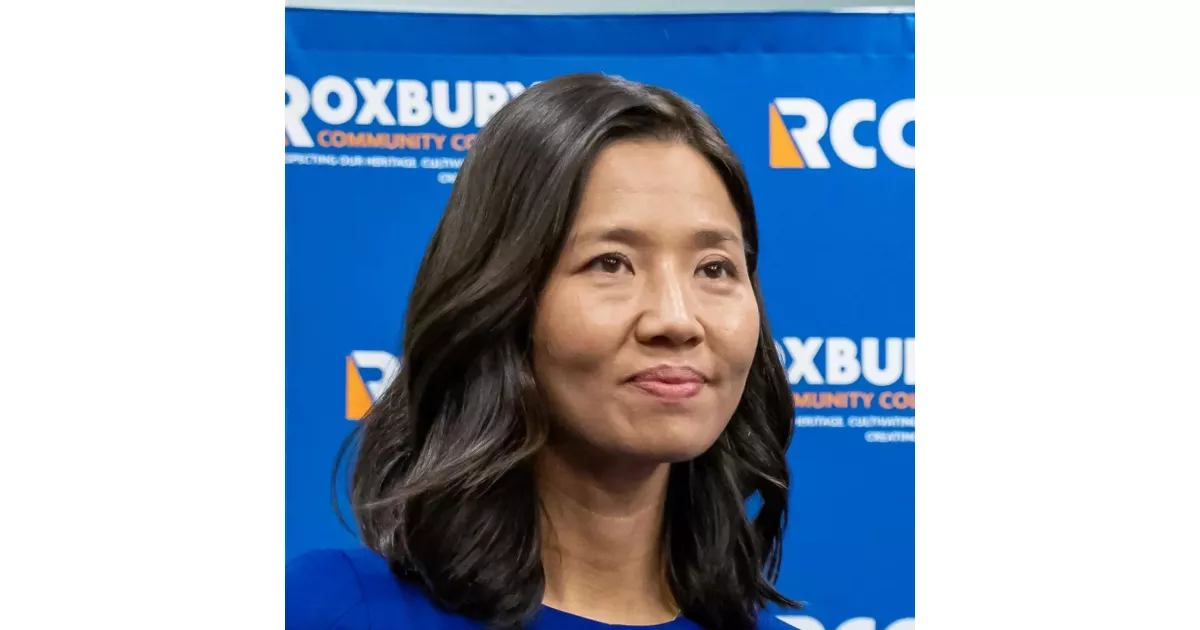From career breakthroughs to professional milestones, explore how Michelle Wu made an impact.
Michelle Wu is an American lawyer and politician currently serving as the mayor of Boston, Massachusetts, since 2021. Her election marked a historic moment as she is the first woman and first person of color to be elected mayor of Boston. Prior to becoming mayor, she served as a member of the Boston City Council from 2014 to 2021, where she championed various progressive policies. Wu's political career has been marked by her focus on issues like affordable housing, climate change, and equitable access to education and resources for all Boston residents. She's considered a rising star in the Democratic party.
2010: Worked in Boston City Hall and Graduated from Emerge Massachusetts
In 2010, Michelle Wu worked in Boston City Hall for Mayor Thomas Menino and graduated from Emerge Massachusetts, a training program for women aspiring to elected office.
2012: Constituency Director for Warren's Senatorial Campaign
In 2012, Michelle Wu worked as the constituency director for Elizabeth Warren's successful senatorial campaign.
2012: Worked on Warren's Senate Campaign
In 2012, Michelle Wu worked on Elizabeth Warren's United States Senate campaign.
2012: Advocacy for Late Night Public Transit
Michelle Wu advocated for late-night public transit in her original platform when running for City Council in 2012.
November 2013: Elected to Boston City Council
In November 2013, Michelle Wu was first elected to a Boston City Council at-large seat.
2013: Boston Magazine's 'Rookie of the Year'
At the end of 2013, Michelle Wu was voted "Rookie of the Year" by the readers of Boston magazine, which was one of three political awards given by the magazine that year.
January 2014: Joined Boston City Council
In January 2014, Michelle Wu became a member of the Boston City Council, as the first Asian American woman to serve on the council.
February 2014: City Council Support for Domestic Workers' Bill of Rights
In February 2014, the Boston City Council unanimously passed a resolution authored by Michelle Wu which voiced the City Council's support for the Massachusetts Domestic Workers' Bill of Rights that was pending before the Massachusetts State Legislature.
June 2014: Ordinance Passed Prohibiting Discrimination Based on Gender Identity
In June 2014, the Boston City Council unanimously passed an ordinance Michelle Wu coauthored, prohibiting Boston's city government from contracting with health insurers that discriminate based on gender identity or expression.
December 2014: Birth of First Child
In December 2014, Michelle Wu gave birth to her first child, a son. She became the first member of the Boston City Council to give birth while holding office. This experience inspired her to create a paid child leave policy for Boston's government employees.
2014: Served on Boston City Council
In 2014, Michelle Wu became the first Asian American woman to serve on the Boston City Council, a position she held until 2021.
April 2015: Boston City Council passed paid parental leave ordinance authored by Wu
In April 2015, the Boston City Council passed a paid parental leave ordinance that was authored by Michelle Wu, providing city employees with six weeks of paid parental leave.
2015: BuildBPS Plan
In 2015 Marty Walsh outlined a BuildBPS plan to invest $1 billion in the construction of new school buildings.
2015: Support for MBTA "Late-Night T" Program
In 2015, Michelle Wu voiced her support for having the MBTA extend its pilot "late-night T" program, which kept transit service open late on weekends.
2015: Re-elected to Boston City Council
In 2015, Michelle Wu was re-elected to the Boston City Council.
January 2016: President of the Boston City Council
In January 2016, Michelle Wu became the president of the Boston City Council, the first woman of color and first Asian American to hold the role.
2016: Considered Future Mayoral Prospect
As far back as 2016, Michelle Wu had long been viewed as a future mayoral prospect, fielding questions about whether she'd consider one day running.
2016: Named One of '14 Young Democrats to Watch'
In 2016, Frank Bruni of The New York Times named Michelle Wu as one of the United States', "14 Young Democrats to Watch".
2016: President of the Boston City Council
In 2016, Michelle Wu began her term as president of the Boston City Council, a position she held until 2018.
2016: Supported Massachusetts Question 4
In 2016, Michelle Wu supported Massachusetts Question 4, a ballot initiative to legalize the recreational use of cannabis in Massachusetts. This decision created a disagreement with Mayor Marty Walsh, who was a vocal opponent of legalization.
October 2017: Voted to adopt Community Choice Aggregation
In October 2017, the Boston City Council voted to unanimously approve a resolution by Michelle Wu and fellow councilor Matt O'Malley, having the city adopt Community Choice Aggregation.
November 2017: Passed ordinance implementing a plastic bag ban
In November 2017, the Boston City Council unanimously passed an ordinance written by Michelle Wu and fellow councilor Matt O'Malley, which implemented a plastic bag ban.
December 2017: Op-Ed on Equity in Opportunity for City Contracting
In December 2017, after the Boston City Council passed the "Ordinance on Equity in Opportunity for City Contracting", Michelle Wu and Ayanna Pressley co-authored an op-ed published in the Dorchester Reporter, advocating for the creation of pipelines for local residents and businesses owned by women and people of color.
2017: Birth of Second Child
In 2017, Michelle Wu gave birth to her second son. She opted to forgo maternity leave and brought her newborn son to City Council meetings after returning to work.
2017: Re-elected to Boston City Council
In 2017, Michelle Wu was re-elected to the Boston City Council, placing first.
2017: Massachusetts Democratic Party's Franklin and Eleanor Roosevelt Award
In 2017, the Massachusetts Democratic Party awarded Michelle Wu its Franklin and Eleanor Roosevelt Award, which it considers its highest honor.
January 2018: End of term as President of the Boston City Council
In January 2018, Michelle Wu's term as president of the Boston City Council came to an end.
March 2018: Finalist for EMILY's List 'Rising Star'
In March 2018, Michelle Wu was among six finalists to be honored as a "Rising Star" by EMILY's List, a national group that supports female Democratic candidates who support abortion rights.
October 2018: Proposal of "Fair Work Week" Ordinance
In October 2018, Michelle Wu proposed a "fair work week" ordinance, requiring city contractors to give employees at least two weeks' notice before changing schedules and to compensate workers for late schedule changes.
2018: End of term as President of the Boston City Council
In 2018, Michelle Wu finished her term as president of the Boston City Council, having served since 2016.
January 31, 2019: Op-ed published in The Boston Globe about eliminating fares for public transit
On January 31, 2019, Michelle Wu argued that the MBTA should explore the possibility of eliminating fares in an op-ed published in The Boston Globe.
March 2019: City Council passed Good Food Purchasing Program ordinance
In March 2019, the City Council unanimously passed the Good Food Purchasing Program ordinance authored by Michelle Wu, which set new requirements for public food purchasers, such as Boston Public Schools.
December 2019: Passed ordinance to protect local wetlands
In December 2019, the Boston City Council passed an ordinance that Michelle Wu had introduced with Matt O'Malley that protects local wetlands and promotes adaption to climate change.
2019: Partnership for Roe Act Support
In 2019, Michelle Wu collaborated with Attorney General Maura Healey, Congresswoman Ayanna Pressley, and City Councilor Lydia Edwards in a digital campaign. The campaign urged the state government to adopt the Roe Act, which aimed to codify abortion care protections from the Roe v. Wade U.S. Supreme Court decision.
2019: Supported Revival of Rent Stabilization
In 2019, Michelle Wu supported the idea of reviving rent stabilization in Boston to prevent people of color from being pushed out of the city, which would first require a change to state law.
2019: Re-elected to Boston City Council
In 2019, Michelle Wu was re-elected to the Boston City Council, placing first.
2019: Published a report on the Boston Planning & Development Agency
In 2019, Michelle Wu's office published a 72-page report on the city's permitting system, calling for the abolition of the Boston Planning & Development Agency.
2019: Emerged as One of Boston's 'Most Effective Politicians'
In 2019, Rachel Allen of The Atlantic wrote that Michelle Wu had emerged as one of Boston's "most effective politicians".
2019: Viewed as Potential Challenger to Mayor Marty Walsh
Since at least 2019, Michelle Wu was viewed as a potential challenger to incumbent mayor Marty Walsh, if Walsh sought reelection in 2021.
June 2020: Introduced ordinance to establish community safety crisis response system
In June 2020, Michelle Wu, alongside fellow city councilors, introduced an ordinance that would establish an unarmed community safety crisis response system, moving the response to nonviolent 9-1-1 calls away from the Boston Police Department.
August 2020: Released plans for "Boston Green New Deal & Just Recovery" program
In August 2020, Michelle Wu released plans for the "Boston Green New Deal & Just Recovery" program, which aims to achieve carbon neutrality for municipal government buildings by 2024, run the city on 100% renewable energy by 2030, and achieve citywide carbon neutrality by 2040.
September 15, 2020: Announced Candidacy for Mayor
On September 15, 2020, Michelle Wu announced her candidacy for mayor of Boston. She was regarded to be challenging Walsh from the political left.
2020: Support for Federal Fare-Free Transit Legislation
In 2020, Michelle Wu supported federal legislation on fare-free public transit, including helping Senator Ed Markey and Congresswoman Ayanna Pressley to promote their proposed "Freedom to Move Act", which would provide grants to communities that eliminate transit fares.
2020: Municipal Green New Deal Proposal
Michelle Wu's 2020 Municipal Green New Deal proposal calls for "decommodifying housing" through the expansion of cooperative housing, community land trusts, and community ownerships. It also calls for the establishment of a renters' right to counsel, guaranteeing legal representation to tenants in eviction proceedings.
2020: Proposal for a "Food Justice" Agenda
Michelle Wu's 2020 proposal for a "food justice" agenda for Boston called for an increase to the minimum wage paid to food-sector workers, guaranteed paid sick leave, and phasing out tipped wage for restaurant and bar workers.
2020: Inclusion of Fare-Free Public Transit in Green New Deal Proposal
Michelle Wu's 2020 proposal for a municipal Green New Deal incorporated her proposal for fare-free public transit.
January 2021: Endorsement of Fare-Free Buses by The Boston Globe
In January 2021, The Boston Globe's editorial board endorsed making the city's buses fare-free, crediting Michelle Wu as a leader on the issue. Her advocacy also inspired Lawrence, Massachusetts mayor Daniel Rivera to implement fare-free transit in his city.
January 2021: Boston Globe endorsed fare-free public transportation
In January 2021, the editorial board of The Boston Globe endorsed the idea of making the city's buses fare-free, crediting Michelle Wu as a leader on the issue.
September 2021: Considered Front-Runner in Primary Election
By September 2021, Michelle Wu was widely considered to be the front-runner in the nonpartisan primary election, with a significant polling lead. Wu ultimately placed first in the nonpartisan primary and advanced to the general election.
November 2, 2021: Won Mayoral Election
On November 2, 2021, Michelle Wu won the election with over 64% of the vote, becoming the first woman and first person of color to become mayor of Boston.
November 2021: Ridership Increased During Pilot Program
In November 2021, the City announced that its data showed that during the fare-free pilot program ridership had increased to an excess of 70,000 in weekly ridership.
November 2021: Sent Appropriations Order to City Council
In mid-November 2021, Michelle Wu sent an appropriations order to the Boston City Council to ask for approval to appropriate $8 million of federal funds to fund two years of fare-free service on the MBTA Route 23, 28, and 29 buses.
November 16, 2021: Sworn in as Mayor of Boston
On November 16, 2021, Michelle Wu was sworn in as mayor of Boston. At 36 years of age, Wu was the youngest person elected mayor of Boston in almost a century.
November 22, 2021: Signed Ordinance to Divest City Investments
On November 22, 2021, Michelle Wu signed an ordinance to divest city investments from companies that derive more than 15 percent of their revenue from fossil fuels, tobacco products, or prison facilities. This process entails the divestment of $65 million in city assets.
December 2021: Extended Fare-Free Pilot Program
In December 2021, Michelle Wu extended the fare-free pilot program for the MBTA Route 28 bus by two months. The City had announced in November 2021, that its data showed that during the pilot program ridership had increased to an excess of 70,000 in weekly ridership.
December 2021: Amended Zoning Code to Eliminate Parking Minimums
In December 2021, Michelle Wu signed into law an ordinance amending the city's zoning code by eliminating off-street parking minimums for new affordable developments where 60% of the units are income-restricted at 100% the area median income in order to remove a barrier for the construction of new units of affordable housing.
2021: Potential Mayoral Run
In 2021 Michelle Wu was viewed as a potential challenger to incumbent mayor Marty Walsh, if Walsh sought reelection.
2021: Ran for mayor instead of seeking a fifth term on the City Council
In 2021, Michelle Wu decided to run for mayor of Boston instead of seeking a fifth term on the City Council.
2021: Proposed expanding paid child leave policy
In 2021, Michelle Wu proposed expanding the paid child leave policy to also provide leave for the broader category of pregnancy loss.
2021: End of City Council Term and Election as Mayor
In 2021, Michelle Wu's term on the Boston City Council ended, as she became the first woman and first person of color to be elected mayor of Boston.
2021: Voted against Mayor Walsh's operating budget for the city
In June 2020, Michelle Wu was one of five members of the Boston City Council to vote against Mayor Walsh's 2021 operating budget for the city.
January 2022: Adopted Municipal Affirmatively Furthering Fair Housing Policy
In January 2022, Michelle Wu also signed an executive order to adopt a municipal Affirmatively Furthering Fair Housing policy. This made Boston the largest city in the United States to adopt such a policy.
January 2022: Designated Funds for Mildred C. Hailey Apartments
In January 2022, Michelle Wu designated $50 million to fund improvements to the Mildred C. Hailey Apartments complex in the Jamaica Plain neighborhood.
February 9, 2022: Announced Fare-Free Program
On February 9, 2022, Michelle Wu and MBTA General Manager Steve Poftak announced that the two-year program for the MBTA Route 23, 28, and 29 buses to be fare-free was officially agreed to and would be launched on March 1, 2022.
March 1, 2022: Extended Pilot Program on MBTA Route 28
On March 1, 2022, as mayor, Michelle Wu extended the pilot program on the MBTA Route 28 bus, adding two additional routes to serve other lower-income areas of the city free of charge for all riders beginning, using funds from $8 million in federal pandemic relief funds.
March 2022: Created Rent Stabilization Advisory Committee
In March 2022, Michelle Wu announced the creation of a Rent Stabilization Advisory Committee, which will report to the city's Office of Housing on Strategies with advice on means to stabilize rents in the city and to combat the displacement of tenants.
April 2022: Unveiled Heat Resilience for Boston Plan
In April 2022, on Earth Day, as part of the city's Climate Ready Boston efforts, Michelle Wu unveiled the Heat Resilience for Boston plan. This plan centers on combatting the impacts of rising heat extremes, focusing on the "environmental justice communities" of Chinatown, Dorchester, East Boston, Mattapan, and Roxbury. Wu also announced the creation of the Boston Extreme Temperatures Response Task Force.
May 2022: Unveiling of "Green New Deal" for Boston Public Schools
In May 2022, Michelle Wu unveiled plans for a "Green New Deal" for Boston Public School buildings. This initiative doubled the city's capital spending on school construction and renovation to $2 billion, compared to the $1 million outlined in former mayor Marty Walsh's 2015 BuildBPS plan. Wu pledged for a more equitable and transparent process with input from students, educators, and parents.
May 2022: Contract Award to City Fresh Foods
In May 2022, the city of Boston awarded a $17 million contract to City Fresh Foods, a local Black-owned business, to serve as a vendor for Boston City Schools. This was the largest non-construction contract awarded to a certified Black-owned business in the city's history, reflecting Wu's emphasis on diversity and supporting the Good Food Purchasing Program.
May 16, 2022: Pledged 'Green New Deal' for Boston Public Schools
On May 16, 2022, Michelle Wu pledged that the city would carry out a "Green New Deal" for Boston Public Schools (BPS) school buildings, which will see renovation of existing facilities and the construction of new ones. This plan expands the funding the city is to invest in school construction from the $1 billion outlined in Marty Walsh's 2015 BuildBPS plan to $2 billion.
June 2022: Agreement to Improve Boston Public Schools
In June 2022, Michelle Wu and Massachusetts state education officials reached an agreement to improve Boston Public Schools, averting state receivership which had been considered due to negative assessments in 2020. Wu opposed proposals to place the schools into receivership.
July 2022: Executive Order on Child Care Funding from Developers
In July 2022, Michelle Wu signed an executive order outlining the formula for how much developers building in downtown Boston must contribute to fund child care services. This builds upon a 1989 policy from Raymond Flynn's mayoralty, but clarifies the amounts developers need to pay, which was previously difficult to enforce.
July 2022: Named New Police Commissioner
In July 2022, following a seven-month search, Michelle Wu named Michael Cox as the new commissioner of the Boston Police Department.
August 2022: American Rescue Plan Grant for Workforce Training
In August 2022, Boston received a $23 million American Rescue Plan challenge grant from the Economic Development Administration to establish a Regional Workforce Training System aimed at training and placing individuals for 4,618 quality jobs in targeted industries over three years starting in October 2022. The Mayor's Office of Workforce Development was the lead applicant.
August 2022: Proposed Home Rule Petition to Ban Fossil Fuels
In August 2022, Michelle Wu unveiled a proposed home rule petition that would see the city request entrance to the state's pilot program for municipalities to ban fossil fuels from most new buildings, with the exception of labs and hospitals.
September 2022: Creation of Cabinet for Worker Empowerment
In September 2022, Michelle Wu announced the creation of the Cabinet for Worker Empowerment, which is tasked with providing oversight to the "Green New Deal" for the city's schools and establishing a trust fund for childcare.
October 2022: Signed Executive Order Changing Approval Process
In October 2022, Michelle Wu signed an executive order that changed the approval process in the city for new income-restricted affordable housing developments. The order sought to halve the time that the approval process takes.
October 2022: Implementation of Regional Workforce Training System
In October 2022, the Regional Workforce Training System, funded by the American Rescue Plan challenge grant, began its three-year program to train and place individuals in quality jobs across targeted industries.
2022: Analysis Found Increase in Ridership
A 2022 analysis found an overall 38% increase in weekday ridership from 7,500 before the pandemic (with fares) to 10,200 during the September and October periods during the pilot program.
February 2023: Veto of City Council Ordinance on School Board Elections
In February 2023, Michelle Wu vetoed a city council ordinance to advance a home rule petition requesting that the state make the city's public school board an elected body. Wu stated that she could not support changes that would compromise the ability to stabilize and support the Boston Public Schools during a critical period.
March 8, 2023: City Council Consented to Home Rule Petitions
On March 8, 2023, in a 11–2 vote the Boston City Council consented to two home rule petitions proposed by Michelle Wu: one asking the state government to permit the city to implement a form of rent control, and the other asking the state to permit Boston to implement Wu's plan to restructure the Boston Planning & Development Agency.
May 2023: Observations on Wu's Approach to City's Business Elite
In May 2023, observers noted that Michelle Wu's approach to dealing with Boston's business elite differed from her predecessors, as she prioritized municipal concerns over giving audiences to business leaders. She prefers group meetings to shape policies, leading to some dissatisfaction among those used to having direct access to the mayor.
July 2023: Signed Executive Order Halting Fossil Fuel Use
In July 2023, Michelle Wu signed an executive order halting the use of fossil fuels in new municipal buildings and major renovations.
December 2023: Contract Agreement with Boston Police Patrolmen's Association
In December 2023, Michelle Wu reached a contract agreement with the Boston Police Patrolmen's Association, which included provisions for officers to lose arbitration rights if convicted of certain crimes, public access to pay details, and stricter medical leave guidelines. The Bay State Banner described it as the first contract where Boston officials secured significant reforms from the Patrolmen's union.
2023: "Champion Award" for Dedication to Arts and Education
In 2023, Mayor Michelle Wu received the annual "Champion Award" for her dedication to the arts and education in Massachusetts. That same year, Wu and former acting mayor Janey received the Boston Arts Academy Foundation's "Champion Award".
2024: Target year for carbon neutrality for municipal government buildings
By 2024, the "Boston Green New Deal & Just Recovery" program aims to achieve carbon neutrality for municipal government buildings.
2024: Climate Push with Mixed Results
In 2024 Wu's climate push had mixed results, including winning a $10 million federal grant for climate-related job training and a failed vote with the Boston Zoning Commission to accelerate the net-zero requirement for all new buildings.
January 14, 2025: Birth of Daughter and Return to Work
On January 14, 2025, Michelle Wu gave birth to her daughter. She chose not to take formal maternity leave, opting for a "working leave" to maintain her mayoral duties.
March 5, 2025: Testimony at Congressional Hearing
On March 5, 2025, Michelle Wu, a Roman Catholic, testified at a congressional hearing on sanctuary cities. She was wearing cross-shaped ashes on her forehead for Ash Wednesday.
2030: Target year for running the city on 100% renewable energy
By 2030, the "Boston Green New Deal & Just Recovery" program aims to run the city on 100% renewable energy.
2040: Target year for achieving citywide carbon neutrality
By 2040, the "Boston Green New Deal & Just Recovery" program aims to achieve citywide carbon neutrality.
Mentioned in this timeline
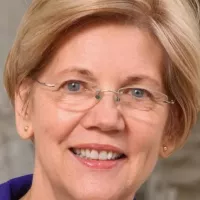
Elizabeth Warren is a prominent American politician and the senior...

Hillary Diane Rodham Clinton is an American politician lawyer and...

Joe Biden a member of the Democratic Party served as...
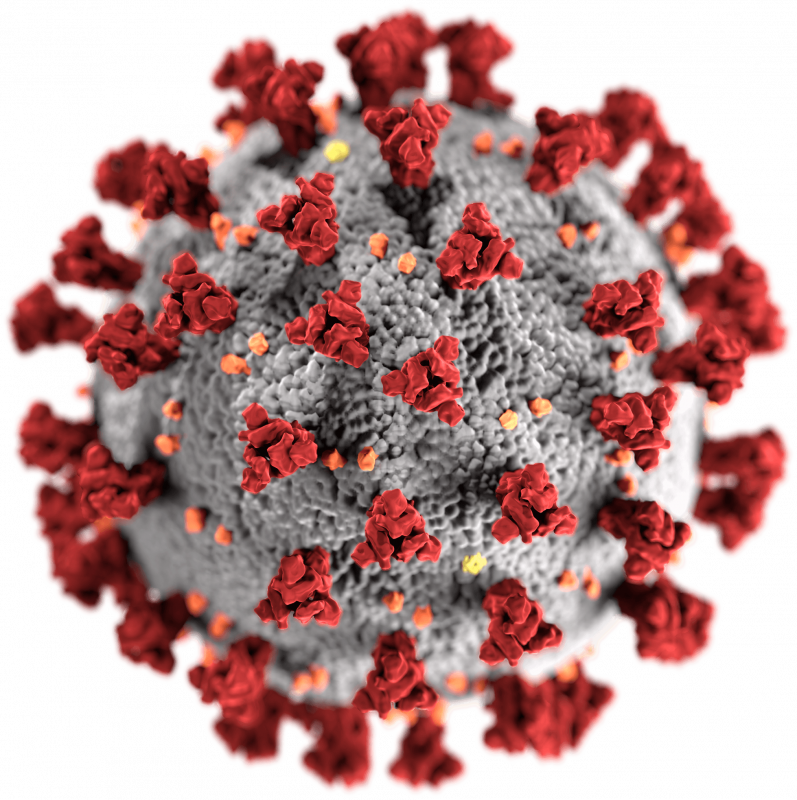
COVID- vaccines are designed to provide immunity against SARS-CoV- the...
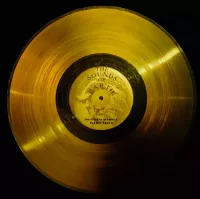
Music is a cultural universal involving the arrangement of sound...
Illinois is a Midwestern U S state bordering Lake Michigan...
Trending
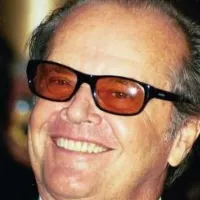
7 months ago Jack Nicholson's disliked movie, films he regrets, and Eric Dane's career help.

7 months ago Svitolina vs. Haddad Maia: Bad Homburg Open 2025 Round of 16 Preview

3 months ago Jasmine Paolini battles past Bencic at Ningbo, eyeing WTA Finals spot.

6 months ago Luka Don?i? Reveals Body Transformation After Intense Offseason Training: 'Body Looks Better'

3 months ago Magda Linette faces Belinda Bencic at WTA 500 Ningbo: Live coverage.

Eileen Gu also known as Gu Ailing is a freestyle skier who represents China in competitions Born in the United...
Popular

Thomas Douglas Homan is an American law enforcement officer who...

Martin Luther King Jr was a pivotal leader in the...

XXXTentacion born Jahseh Dwayne Ricardo Onfroy was a controversial yet...

Instagram is a photo and video-sharing social networking service owned...

Jupiter is the fifth and largest planet from the Sun...

KFC or Kentucky Fried Chicken is an American fast-food chain...
